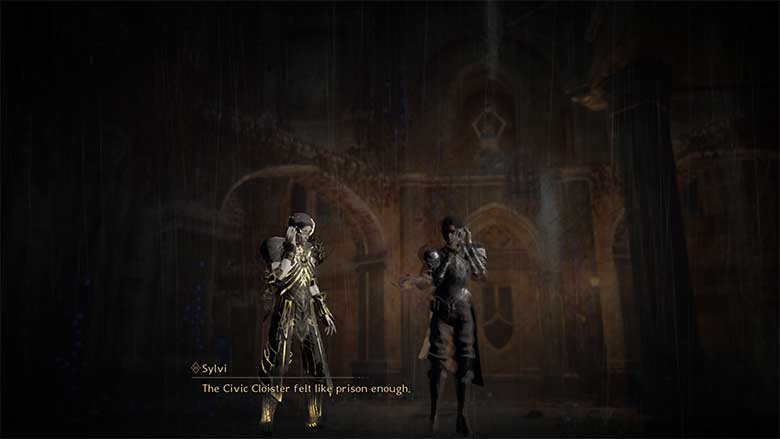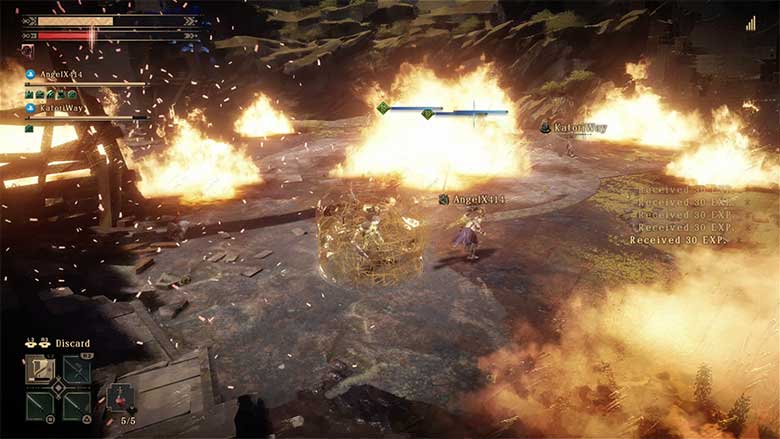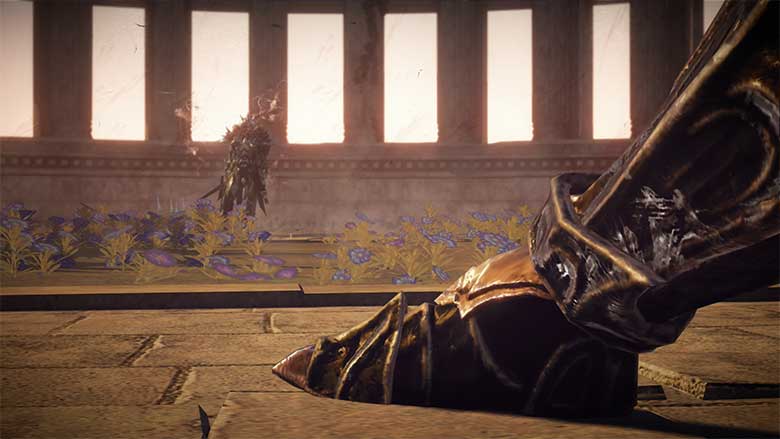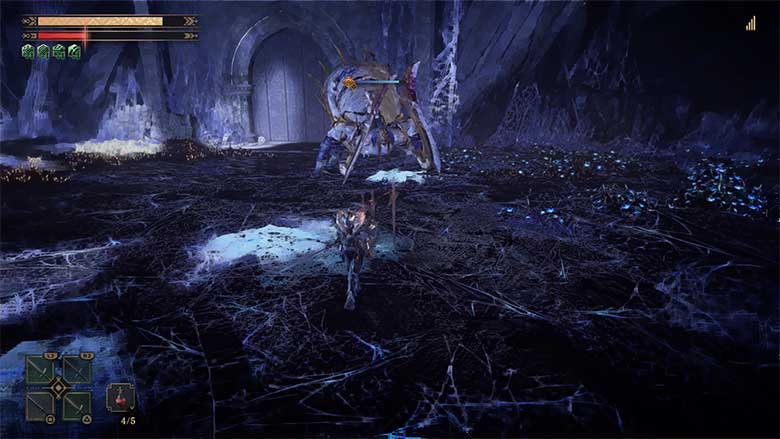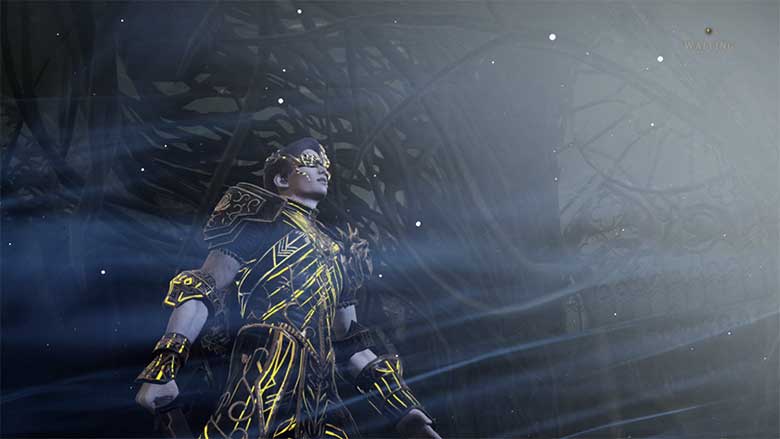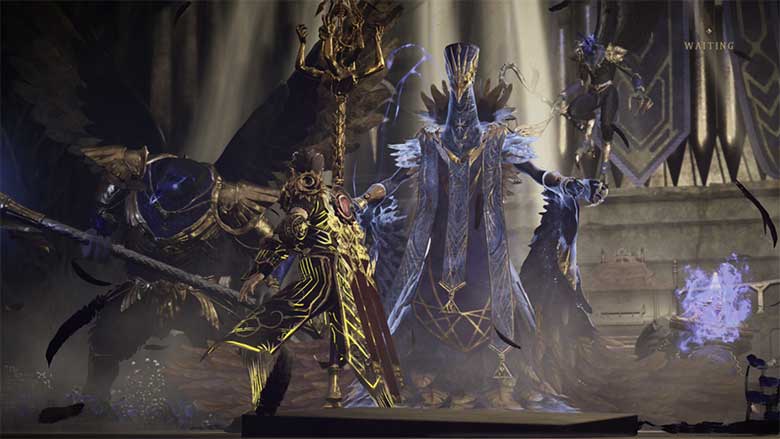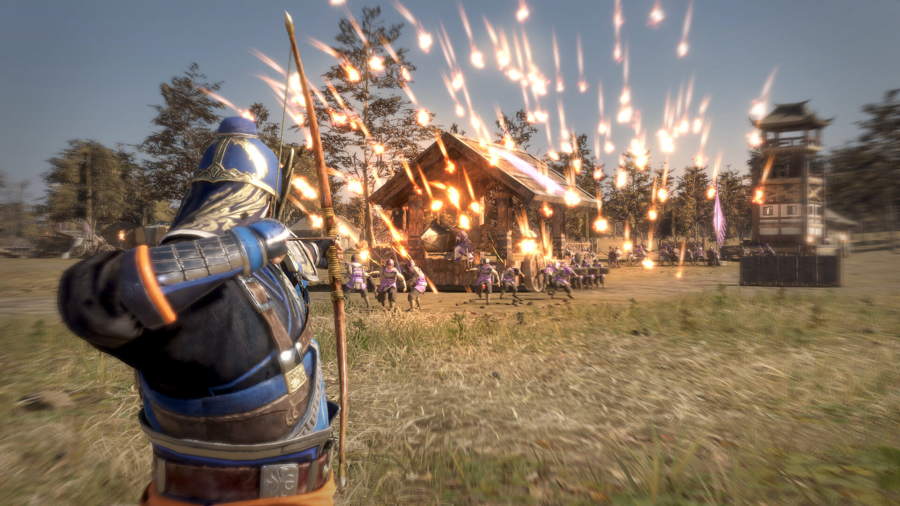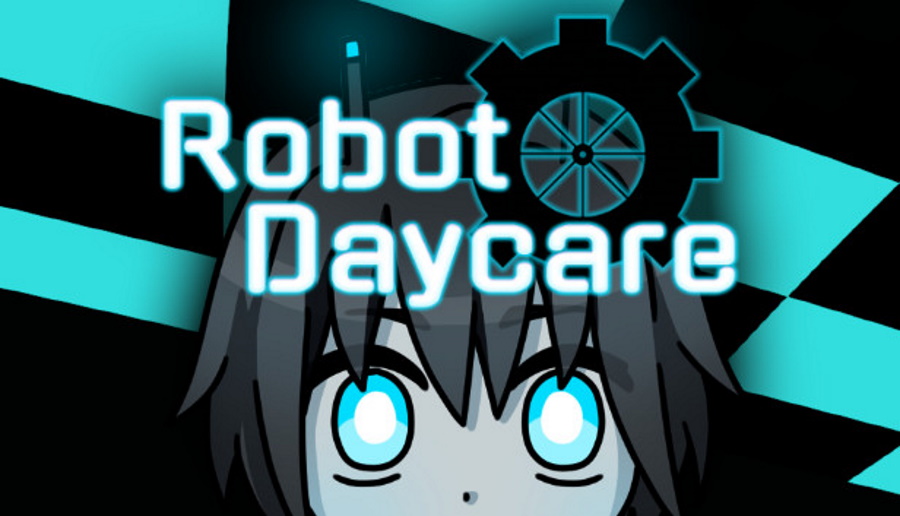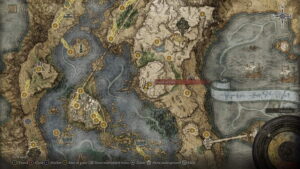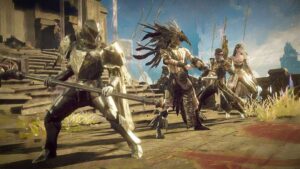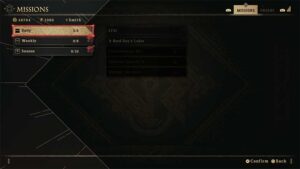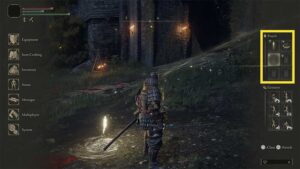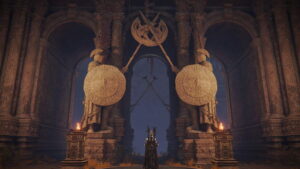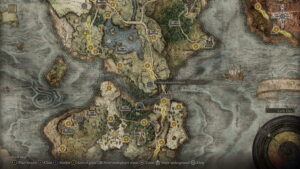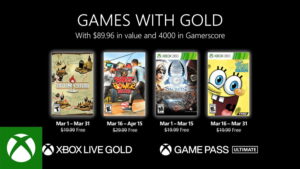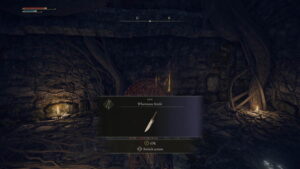Square Enix once again looks to capitalize on the games as a service model after struggling with Marvel’s Avengers with the release of Babylon’s Fall. However, this time they are utilizing the experience and expertise of Platinum Games. Hoping to bring the studios’ iconic, fast-paced combat into a live service model has its obvious benefits, but as with Marvel’s Avengers, those benefits don’t always materialize for the players themselves.
Babylon’s Fall Review
No time is wasted before Babylon’s Fall throws its Battle Pass down the throat of players – free for Season One, but a premium item thereafter. However, therein lies many of the problems with the game – its one goal is to keep you playing as long as humanly possible. Unfortunately, that becomes painfully obvious as you claw and scratch your way through Power Level upgrades while not actually experiencing any real progression – well, until you do, then something quite surprising happens.
Before we dive into the good and bad of Babylon’s Fall, let’s first look at the great. The story is fantastic; incredible, even. It’s full of twists and turns you never see coming. It’s dark, impactful, and would be a perfect main narrative in a regular RPG without the games as a service tacked on. The player takes on the role of a Sentinel, a war prisoner exposed to a Gideon Coffin. This parasitic-like device kills most of what it infects, but it bestows great powers on those it does not.
Sentinel’s are tasked with climbing the great Ziggurat, the Tower of Babylon, searching for treasures and relics of yesteryear. The story develops into a more serious narrative that truly sits up there with Platinum Games’ best storytelling work.
Babylon’s Fall boasts Platinum Games’ adrenaline-fueled, real-time combat, expertise carried from each release over the years. With the likes of NieR: Automata, Metal Gear Rising: Revengeance, and Bayonetta under the studio’s pedigree, it’s fair to say expectations are high when it comes to delivering an impactful combat experience. Babylon’s Fall does deliver on its combat promises.
Each character, or Sentinel as they are called, can equip up to four unique weapons. You have two main weapons that you can use to combine both light and heavy attacks, and then two spiritual-like weapons that can be used when you have enough Spirit energy, energy gathered from attacking, and unleashing combination attacks on enemies. There are five unique weapon types: Sword, Hammer, Bow, Rod, and Shield. Each one has its own combination attacks and learning curve.
You can specialize in a single weapon, unleashing sword after sword strike as you rapidly build up Spirit energy to unleash a never-ending onslaught of special attacks. Alternatively, you can switch it up. Get up close and personal with powerful Hammer attacks before retreating to a safe distance and firing a barrage of arrows on your enemies from afar. It’s a thrilling combat system, but one that will not appeal to everyone.
Babylon’s Fall’s progress is slow, but incredibly rewarding once you get there. The first 10-20 hours, depending on whether you’re playing in a group of going through solo, you’re just throwing on any equipment that improves your stats. However, when you venture towards the latter stages of the game, and eventually end-game, the customization options with each build explodes with potential. The game is still very much a grind, not too dissimilar to Destiny or The Division. If that kind of grind appeals to you, Babylon’s Fall is a must-have, but if it doesn’t, it’s a hard sell.
For the first 15 hours of the game, I felt as though my Sentinel lacked any personality, any individuality, struggling to find purpose in a group of nearly identical characters just throwing around different weapons. And then, almost in the same 30 minute window, you unlock new options that completely opens the combat to all new possibilities. It’s rather bizarre. I would go as far to say the first portion of the game nearly bored me to death after the initial “wow” of combat died down, but now I can’t put the controller down. While I’m absolutely loving the combat by this point; the progression is still an area of which I am not a fan.
The entire game is focused around your Sentinel’s Power Level. Each item you find has various stats and a Power Level associated with it, which represents your character’s overall power. It’s a mechanic all too familiar in games that want to give the illusion of progress where progress is absent but there’s no denying the appeal for a lot of players. If you enjoy grinding through combat for the chance of leaping that few extra points of Power Level, Babylon’s Fall offers just that.
For those with the patience to get through the dull start of the game, there’s plenty of grind-focused upgrades and improvements you can make towards the end of the game and if taking down bosses tickles your fancy, this is the place to be.
While many of them share similar mechanics, the boss design is second to none. Each battle is intense and challenging; whether flying solo or with a group, you’ll be dodging projectiles like a bullet hell and jumping over massive stomping attacks like an MMO. It’s a combination of the best boss mechanics from across the spectrum, and really helps alleviate some of the pain of an otherwise highly repetitious gameplay loop.
Babylon’s Fall is certainly not for everyone. Much of the story is simply following corridors of enemies until reaching a final boss room. It’s dull and repetitive, saved only by the possibility of another unveiling of the story at the end of each mission. However, once you unlock the end-game content, such as Skirmishes, the game really blossoms. Skirmishes, while still following the mundane corridor to boss format, offer far greater challenges and rewards and combines with a more open-ended combat system to deliver a game worthy of Platinum Games’ past works. Later, post-game, you unlock Sieges that are much more varied and exciting, the ability to switch up weapon attack types, it’s incredibly satisfying to finally get there but for some, the wait may be too long. Babylon’s Fall really is a game that doesn’t start until it finishes.
My time with Babylon’s Fall was a strange one. I don’t recall ever disliking a game so heavily, only to fall in love with it moments later. The satisfaction driven nature of the experience is a road worth taking, but the slow burn isn’t for everyone.
The post Babylon’s Fall Review appeared first on GamersHeroes.
- "
- 9
- access
- across
- AI
- All
- Another
- appeal
- appeals
- AREA
- around
- Art
- auto
- Battle
- Battlefield
- before
- benefits
- BEST
- border
- build
- challenges
- challenging
- characters
- code
- College
- coming
- compelling
- content
- controller
- curve
- delivering
- Design
- died
- different
- digital
- distance
- down
- driven
- Early
- energy
- equipment
- experience
- expertise
- fair
- Finally
- First
- First Look
- focused
- format
- Free
- full
- game
- gameplay
- Games
- Gear
- good
- great
- Group
- hidden
- High
- hoping
- HTTPS
- i
- IT
- Job
- Kills
- King
- learning
- Level
- light
- Long
- love
- Marvel
- May
- Mechanics
- metal
- Mission
- model
- more
- move
- offer
- Offers
- open-ended
- opens
- Options
- Pain
- Personality
- player
- players
- Playing
- playstation
- playstation 5
- Plenty
- possible
- potential
- power
- powerful
- Premium
- projectiles
- purpose
- RE
- real-time
- release
- review
- Rewards
- road
- robot
- robots
- room
- s
- safe
- sell
- Series
- Service
- Share
- So
- Spectrum
- Spotlight
- square
- Square Enix
- start
- stats
- Steam
- Story
- storytelling
- Switch
- system
- tells
- The
- Throat
- Through
- time
- unique
- unlock
- upgrades
- venture
- version
- wait
- war
- What
- Work
- works
- worth
- years
